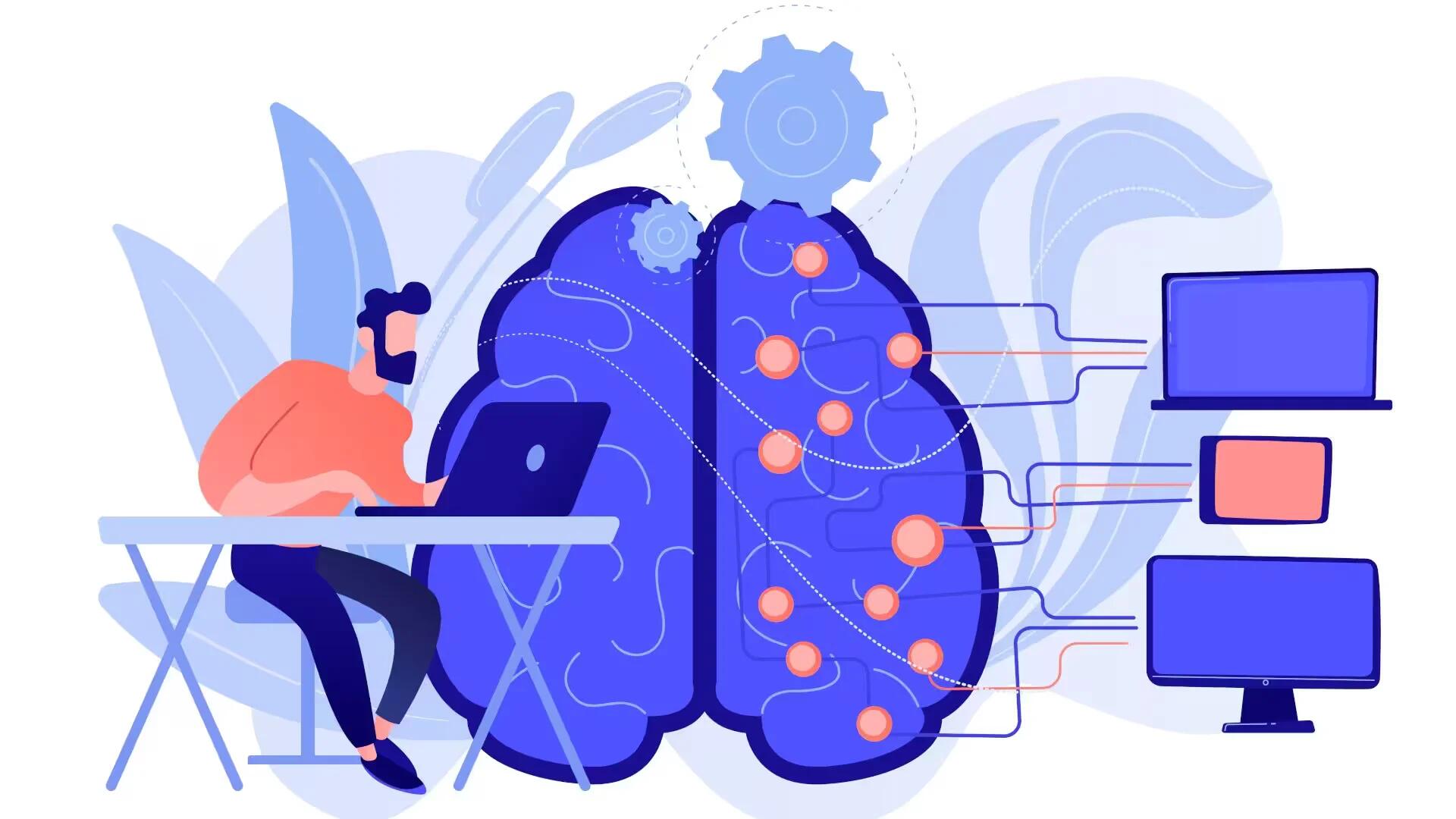Key Takeaways
- Understanding the fundamentals of machine learning and its practical applications is essential.
- Machine learning technologies offer significant benefits in personalizing customer experiences, enhancing healthcare, optimizing operations, and more.
- Ethical considerations must be at the forefront when deploying machine learning algorithms.
Machine learning has moved beyond academia and science fiction into our daily lives, acting as the engine driving modern innovations. It offers insight, optimizes processes, and automates decisions based on data it is exposed to. Here, we explore the wide-ranging applications that illustrate this technology’s transformative power.
The Essence of Machine Learning
Machine learning is a technology under the broader umbrella of artificial intelligence that focuses on data and patterns. But what is machine learning used for in our day-to-day activities, and how is it reshaping various industries? Computers use machine learning to detect these patterns and make predictions, learning from historical data without explicit programming for each new scenario. This adaptive learning capacity gives machine learning power, allowing it to find its application in countless scenarios, from sorting through immense complex data repositories to streamlining decision-making processes.
Enhancing Customer Experiences with Personalization
The way we shop and interact with brands has been reimagined thanks to machine learning. By analyzing consumer behavior and past purchases, retailers are now delivering personalized shopping experiences. The result is a customer who feels understood and valued, which boosts loyalty and sales. In online content, machine learning algorithms curate the media consumed and learning preferences and serve up the next bingeworthy show or article that seems written just for you.
Streamlining Healthcare through Predictive Analysis
Healthcare professionals are turning to machine learning to make more accurate diagnoses and predictions about disease progression. Sophisticated predictive analytics can mean the difference between early detection and missed diagnoses. By searching for patterns across countless medical records and imaging data, algorithms can alert doctors to health risks before they become critical and help them craft individualized treatment plans based on a patient’s unique medical history.
Optimizing Operational Efficiencies
The versatility of machine learning extends to the intricacies of operational management across various industries. Machine learning algorithms forecast product demand in logistics and supply chain management, streamlining inventory management. In customer service, chatbots, a fruit of machine learning labor, provide instantaneous responses to inquiries. As for manufacturing, predictive maintenance forecasts the wear and tear on industrial machinery, flagging it for service before an unforeseen shutdown occurs.
Transforming Financial Services
Machine learning in finance is about more than just number-crunching; it is about security and trust. By constantly analyzing financial transaction patterns, these algorithms can detect aberrations that may indicate fraudulent activity, nipping such schemes in the bud and protecting customer investments. Furthermore, better credit-scoring models built with machine learning provide more accurate assessments of a borrower’s risk factor, benefiting lenders and consumers seeking credit.
Driving Advancements in Autonomous Vehicles
Self-driving cars are one of the most thrilling applications of machine learning. Such vehicles utilize machine learning algorithms to process real-time data from sensors and cameras to inform their movement, effectively learning as they go. The technology’s ability to adapt to new road conditions and learn from previous experiences continuously improves the safety and reliability of autonomous transport.
The Intersection of Machine Learning and Agriculture
Some may find agriculture surprising, but it is an industry ripe for machine learning applications. Data-driven farming techniques allow for predicting crop yield, monitoring soil health, and managing resources more efficiently. These insights are not just about profitability; they are about sustainable practice and ensuring that future generations can access the necessary agricultural output.
Educational Advancements Using Machine Learning
In education, machine learning is an up-and-coming disruptor. It promises personalized learning experiences through platforms that adapt to each student’s abilities and learning speed. These systems can pinpoint where a student may be struggling, allowing for timely intervention and support and drastically revolutionizing the educational process.
Ethics and Machine Learning
While laden with benefits, machine learning deployment also presents ethical questions that society must grapple with. Ensuring that machine learning algorithms are not biased and that people’s data privacy rights are respected remains a constant concern. Moreover, as machine learning continues to enhance capabilities across sectors, fears of job displacement also require attention and action.
With the widespread adoption of machine learning, our future looks more efficient, informed, and innovative. Yet, along with these advances come responsibilities. Companies and governments alike must steward this technology wisely to ensure that the benefits of machine learning are enjoyed universally, and its risks are managed thoughtfully.
